the dreaded interview.
The worst part about applying to a job? The dreaded interview. How do I look? Did I prepare enough? God, I hope they like my answers…I hope they like me. Even though this was a fake interview with course mates, I was still nervous. I was still asking myself these questions.
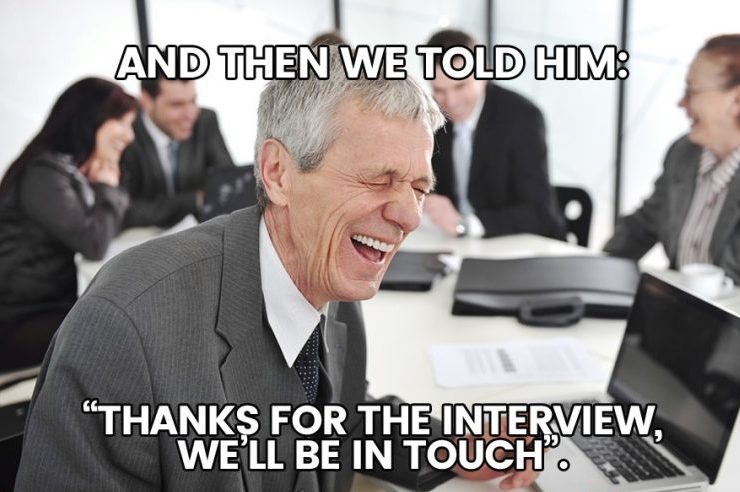
While researching for a job to put forward for my simulated interview, I came across an “Assistant Producer Accelerator Programme” for the BBC. I immediately knew it was the right job to choose for this task due to the requirements for the job. They were looking for three broadcasting credits and because of this placement module, I now had that very thing. My work placement was able to provide me with the necessary experience and give me things to talk about relating to this position. In order to reflect on my experience with this simulated interview, I am going to engage with Gibbs’ Reflective Cycle as it “encourages a clear description, analysis of a situation, and examines what would do should the situation happen again. (Jasper, 2013)”. I also found that, after my first blog post, this cycle was very enlightening and helped me make the most of my placement over the holiday period. Therefore, I feel it would be appropriate to apply it once again.
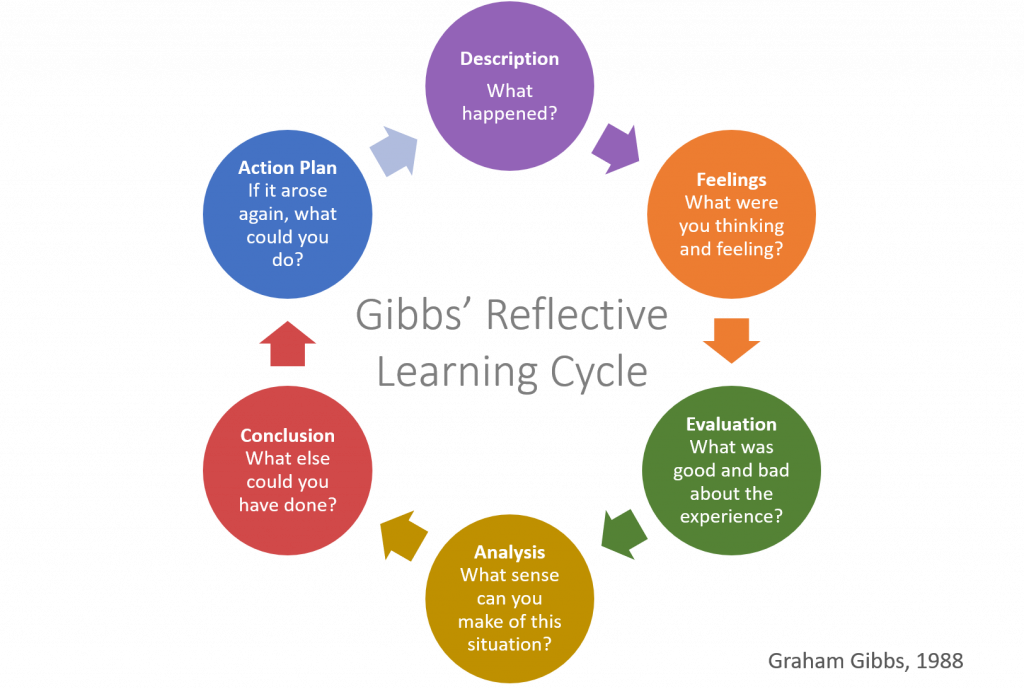
Description:
For our second class of semester 2, each student had to complete a session of simulated interviews, through both conducting and participating. I was put into group 5 which consisted of myself and three other guys on my course. To prepare for this session, we had to come up with interview questions to ask each other based on the job descriptions we had provided. Alongside this, we also had to research and practise for our own interview. The session was run via a series of 20-minute blocks; 5 minutes for preparation, 10 minutes to interview and 5 minutes to write feedback. I was the last person to be interviewed in our group’s session.
Feelings:
I was feeling very nervous before my interview because I didn’t feel prepared at all. I was very behind on all of my work for university from the previous week and decided to put this simulation at the bottom of my priority list, as it was an unmarked piece of work. This led to a very panicky night before, trying to cram information about the job that I was ‘applying’ for, as well as getting my questions for the other members of my group organised.
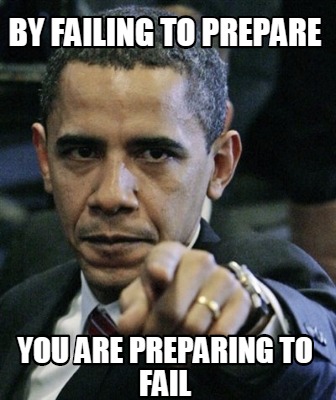
However, during the interview itself, my thinking process was shifted dramatically. Once my interview began, I realised that the work I had been carrying out for my placement had prepared me with great answers to give to the panel and I was able give examples for things I had experienced during the year. However, although I was confident in my answers, I was rocking my chair and playing with my hands throughout the interview due to my nerves.
Evaluation:
I think what was good about this simulation was that it was able to readjust my thought process on an interview setting. It made me realise how conversational interviews can be and that the interviewer isn’t evil or there to stop you getting the job. Any time I asked one of my questions, I actually felt myself rooting for the candidate to give a good answer and I was surprisingly intrigued to hear the answers they provided. However, the bad side of the experience was the fact that I went in with the mindset of ‘this is fake and doesn’t matter’, therefore, I treated the build-up as such and, in doing so, hindered myself from reaching my full interviewee potential.
Analysis:
It was really interesting to be on the interviewer’s side of the table and experience what that is like. As I said above, it really helped me to gain more of a sense of the interviewing process. As for the interviewee experience, even though I completely lacked any preparation, I was quick on my feet and able to give solid answers off the top of my head. However, I feel as though this is not information I should have learned about myself. I’m getting the sense that this will possibly give me some false confidence in the future and lead to a very awkward and underprepared interview situation.
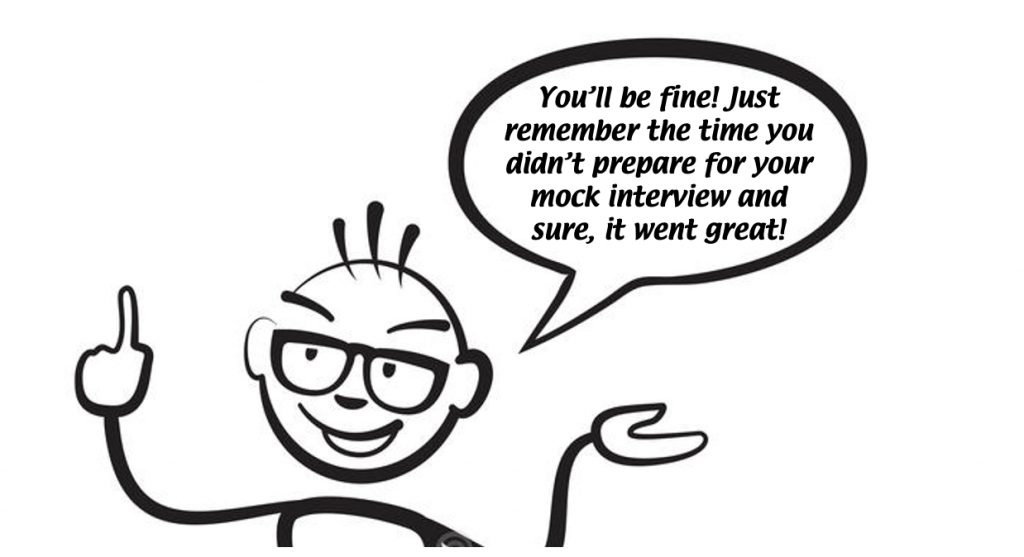
Conclusion:
Upon reflection, there are a few things I could have done during the interview that probably would have improved the experience and my scores. Although the feedback that I received from my classmates was 5/5 for my content and 5/5 for my reflection, my average presentation score was a 4/5 and is something that I also agree could be improved. As I mentioned above, I was very nervous throughout the interview as personified by my body language. In the future, I need to relax more and try not to fiddle or sway on my chair. I also could have given more eye contact during my answers. I felt myself looking down while speaking but I did try to look up every once in a while. However, it felt very awkward just giving my classmates a sort of stare so that they would note down that I was giving them eye contact.
Action Plan:
I feel like if I were going to do this exercise again, I would need to take it more seriously. The fact that I scored so highly with such little preparation is, without doubt, a complete fluke. While I was able to answer the questions thoroughly, this was not a real interview situation, and I will need to remember that going forward. In order to get the most out of future interviews, I will need to start preparing a good week or two in advance and make sure I stay up to date on everything the company is up to. Alongside this, I should practise my answers and the techniques they follow, such as the STAR technique.
References:
Fig.1 – https://helendenheld.com/tag/gibbs-reflective-learning-cycle/
Jasper, M. (2013) Beginning reflective practice. Andover: Cengage Learning EMEA.
You May Also Like
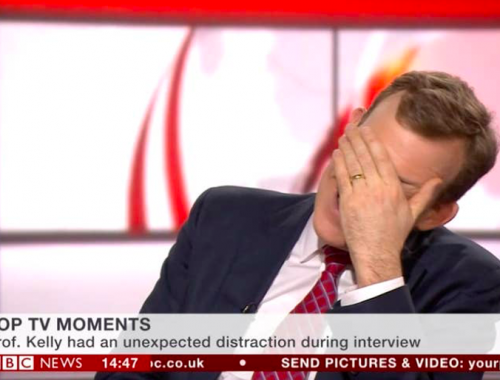
When the BBC thinks you live in the Atlantic – My Simulated Interview
17 February 2022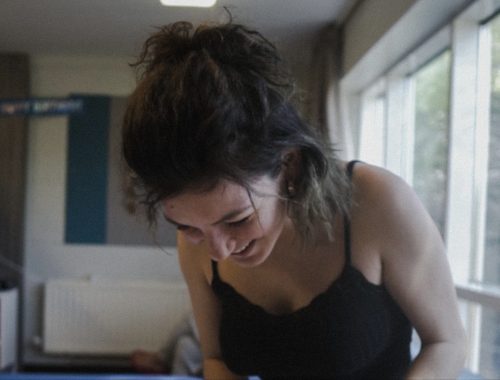
Surprisingly Worthwhile
18 February 2022

